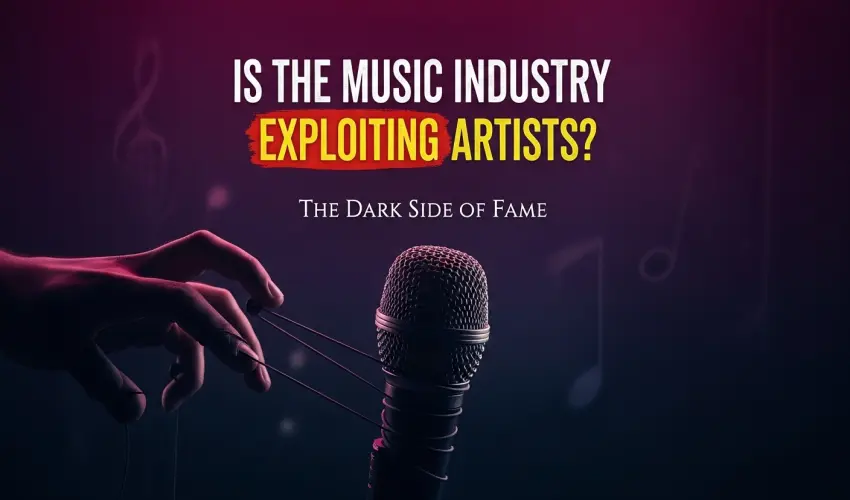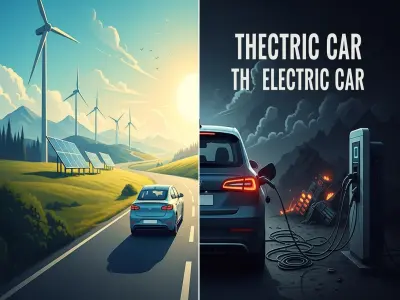Is the Music Industry Exploiting Artists? The Dark Side of Fame
Published Sep 20, 2025
1 0
Key Takeaways
-
The music industry has a long history of exploiting artists through unfair contracts, financial manipulation, and psychological control.
-
Many artists do not own their master recordings and must fight for creative and financial independence.
-
Mental health struggles, burnout, and toxic work environments are rampant but often hidden behind public success.
-
Streaming platforms provide exposure but often pay fractions of a cent per stream, compounding financial challenges.
-
A new wave of artist advocacy, legal battles, and direct-to-fan models is pushing for industry-wide reform.
Introduction: The Glamorous Image vs. the Hidden Reality
To the outside world, being a music artist looks like the ultimate dream: flashing lights, roaring crowds, luxury lifestyles, and creative freedom. But beneath this dazzling surface lies a darker truth. Many artists are caught in a system that profits from their talent while stripping away their autonomy, creativity, and even financial security.
From legends like Prince and TLC to modern megastars like Taylor Swift and Kanye West, artists across generations have spoken out about manipulation, unfair contracts, and psychological strain. In the streaming age, as more musicians speak up, it's time to ask: is the music industry built to exploit?
A History of Artist Exploitation
The exploitation of musicians didn’t start with Spotify. In the early days of recorded music, artists—particularly Black artists—were vulnerable, often signing away rights for meager advances while record labels built empires off their work.
Legacy Cases of Unfair Contracts
-
Motown: While one of the most successful labels in history, many of its artists did not see fair profits from the timeless hits they created.
-
TLC: Their infamous 1990s bankruptcy, despite multi-platinum success, remains a symbol of how labels could pocket millions while artists went broke.
-
Prince: Famously wrote "slave" on his face to protest Warner Bros., who controlled his master recordings and creative output.
Predatory Contracts and Financial Manipulation
The "360 Deal" Trap
Modern artists often sign a "360 deal," where the label takes a cut from everything—not just album sales, but tours, merchandise, endorsements, and even social media earnings. Marketed as a partnership, these deals can trap artists into decades-long agreements where they work endlessly but see little of the profit.
Hidden Costs and Recoupable Expenses
Here’s the dirty secret: most record label advances are loans. Every photo shoot, music video, stylist, and tour bus is charged to the artist’s account. Before an artist sees a single dime from royalties, they must "recoup" these costs, often without full transparency.
Royalties and the Streaming Economy
Streaming platforms pay artists fractions of a cent per stream. Spotify, for instance, pays around $0.003 to $0.005 per play. For an artist to earn just $1,000, their song needs roughly 250,000 to 300,000 streams. The label, meanwhile, often takes the lion's share of that revenue.
Creative Control and Ownership: The Battle for the Masters
One of the biggest fights in music today is over ownership. In many standard contracts, artists sign away their masters—the original recordings of their music. This means the label decides how the music is used, licensed, or monetized, forever.
Taylor Swift’s public feud over her masters brought this issue into the spotlight. After being denied the chance to buy back her early albums, she chose to re-record them, reclaiming control in a groundbreaking way. Her story inspired a generation of musicians to demand ownership from the start.
Psychological Pressure and Burnout
The pressure to constantly perform, stay relevant, and appease fans can lead to anxiety, depression, substance abuse, and burnout.
-
Toxic Work Environments: Artists are often overworked on back-to-back tours while having every aspect of their image micromanaged by their label.
-
Fame-Induced Mental Health Struggles: Many artists, including Billie Eilish and Shawn Mendes, have openly discussed mental health crises tied directly to industry demands.
-
Isolation and Identity Erosion: Fame can be incredibly isolating, with transactional relationships and a constant need to "perform," causing many artists to lose touch with their real identity.
Industry Abuse and Power Imbalances
Young, underrepresented, and international artists are particularly vulnerable to exploitation. Lacking the resources to navigate the system, they are often signed to predatory deals that prioritize profit over their well-being. Furthermore, sexual misconduct remains a grim reality, with many victims fearing career-ending retaliation for speaking out.
The Push for Industry Reform
Artist Unions and Advocacy Groups
Organizations like MusiCares and the Black Music Action Coalition are pushing for fairer treatment, transparency, and mental health resources.
Transparency and Fair Pay Movements
The #BrokenRecord campaign calls out unfair streaming royalties, while artists like Imogen Heap are pioneering blockchain-based platforms to ensure transparent, direct payments.
Legal Battles Changing the Landscape
High-profile lawsuits are forcing changes in how contracts are written, with more artists successfully negotiating for master ownership, fair revenue splits, and creative control.
Moving Forward: Empowering the Artist
New models are creating pathways for artists to bypass the traditional system:
-
NFTs, crowdfunding, and direct-to-fan platforms are creating new revenue streams.
-
Community support systems and mental health resources are slowly becoming industry standards.
-
A cultural shift toward artist respect, fueled by movements like #FreeBritney, has shown that public pressure can lead to real change.
Conclusion: A Glimpse Beyond the Spotlight
Exploitation in the music industry is real, widespread, and deeply rooted, but change is happening. As fans, creators, and insiders continue to speak out, a new industry model is emerging—one that values artists as people first, not just products. The future of music depends on empowering artists to take back control of their art, their careers, and their lives.







